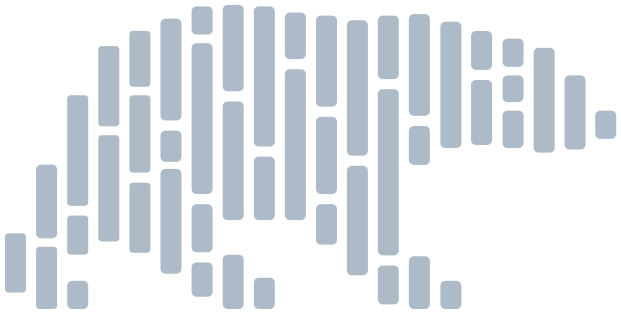polars.LazyFrame.filter#
- LazyFrame.filter(
- *predicates: IntoExprColumn | Iterable[IntoExprColumn] | bool | list[bool] | np.ndarray[Any, Any],
- **constraints: Any,
Filter rows in the LazyFrame based on a predicate expression.
The original order of the remaining rows is preserved.
Rows where the filter predicate does not evaluate to True are discarded (this includes rows where the predicate evaluates as
null).- Parameters:
- predicates
Expression that evaluates to a boolean Series.
- constraints
Column filters; use
name = valueto filter columns using the supplied value. Each constraint behaves the same aspl.col(name).eq(value), and is implicitly joined with the other filter conditions using&.
See also
Notes
If you are transitioning from Pandas, and performing filter operations based on the comparison of two or more columns, please note that in Polars any comparison involving
nullvalues will result in anullresult, not boolean True or False. As a result, these rows will not be retained. Ensure that null values are handled appropriately to avoid unexpected behaviour (see examples below).Examples
>>> lf = pl.LazyFrame( ... { ... "foo": [1, 2, 3, None, 4, None, 0], ... "bar": [6, 7, 8, None, None, 9, 0], ... "ham": ["a", "b", "c", None, "d", "e", "f"], ... } ... )
Filter on one condition:
>>> lf.filter(pl.col("foo") > 1).collect() shape: (3, 3) ┌─────┬──────┬─────┐ │ foo ┆ bar ┆ ham │ │ --- ┆ --- ┆ --- │ │ i64 ┆ i64 ┆ str │ ╞═════╪══════╪═════╡ │ 2 ┆ 7 ┆ b │ │ 3 ┆ 8 ┆ c │ │ 4 ┆ null ┆ d │ └─────┴──────┴─────┘
Filter on multiple conditions:
>>> lf.filter((pl.col("foo") < 3) & (pl.col("ham") == "a")).collect() shape: (1, 3) ┌─────┬─────┬─────┐ │ foo ┆ bar ┆ ham │ │ --- ┆ --- ┆ --- │ │ i64 ┆ i64 ┆ str │ ╞═════╪═════╪═════╡ │ 1 ┆ 6 ┆ a │ └─────┴─────┴─────┘
Provide multiple filters using
*argssyntax:>>> lf.filter( ... pl.col("foo") == 1, ... pl.col("ham") == "a", ... ).collect() shape: (1, 3) ┌─────┬─────┬─────┐ │ foo ┆ bar ┆ ham │ │ --- ┆ --- ┆ --- │ │ i64 ┆ i64 ┆ str │ ╞═════╪═════╪═════╡ │ 1 ┆ 6 ┆ a │ └─────┴─────┴─────┘
Provide multiple filters using
**kwargssyntax:>>> lf.filter(foo=1, ham="a").collect() shape: (1, 3) ┌─────┬─────┬─────┐ │ foo ┆ bar ┆ ham │ │ --- ┆ --- ┆ --- │ │ i64 ┆ i64 ┆ str │ ╞═════╪═════╪═════╡ │ 1 ┆ 6 ┆ a │ └─────┴─────┴─────┘
Filter on an OR condition:
>>> lf.filter( ... (pl.col("foo") == 1) | (pl.col("ham") == "c"), ... ).collect() shape: (2, 3) ┌─────┬─────┬─────┐ │ foo ┆ bar ┆ ham │ │ --- ┆ --- ┆ --- │ │ i64 ┆ i64 ┆ str │ ╞═════╪═════╪═════╡ │ 1 ┆ 6 ┆ a │ │ 3 ┆ 8 ┆ c │ └─────┴─────┴─────┘
Filter by comparing two columns against each other
>>> lf.filter( ... pl.col("foo") == pl.col("bar"), ... ).collect() shape: (1, 3) ┌─────┬─────┬─────┐ │ foo ┆ bar ┆ ham │ │ --- ┆ --- ┆ --- │ │ i64 ┆ i64 ┆ str │ ╞═════╪═════╪═════╡ │ 0 ┆ 0 ┆ f │ └─────┴─────┴─────┘
>>> lf.filter( ... pl.col("foo") != pl.col("bar"), ... ).collect() shape: (3, 3) ┌─────┬─────┬─────┐ │ foo ┆ bar ┆ ham │ │ --- ┆ --- ┆ --- │ │ i64 ┆ i64 ┆ str │ ╞═════╪═════╪═════╡ │ 1 ┆ 6 ┆ a │ │ 2 ┆ 7 ┆ b │ │ 3 ┆ 8 ┆ c │ └─────┴─────┴─────┘
Notice how the row with
Nonevalues is filtered out; usingne_missingensures that null values compare equal, and we get similar behaviour to Pandas:>>> lf.filter( ... pl.col("foo").ne_missing(pl.col("bar")), ... ).collect() shape: (5, 3) ┌──────┬──────┬─────┐ │ foo ┆ bar ┆ ham │ │ --- ┆ --- ┆ --- │ │ i64 ┆ i64 ┆ str │ ╞══════╪══════╪═════╡ │ 1 ┆ 6 ┆ a │ │ 2 ┆ 7 ┆ b │ │ 3 ┆ 8 ┆ c │ │ 4 ┆ null ┆ d │ │ null ┆ 9 ┆ e │ └──────┴──────┴─────┘

